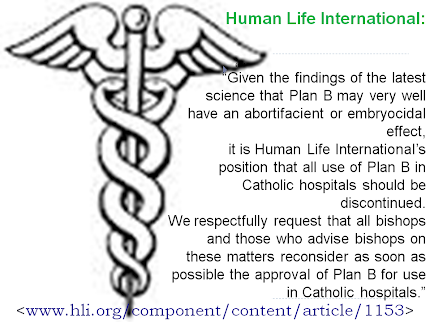In the November 24th Courier Times, Brian Loutrel raised the issues of character, integrity, and judgment, as we assess who would be most fit as our next president. Released just one week earlier was "Forming Consciences for Faithful Citizenship: A Call to Political Responsibility from the Catholic Bishops of the United States with Introductory Note." It is unfortunate that its release seems to have gone unnoticed by the Courier Times, especially as it offers four basic principles for political decision making, which cross sectarian lines :
- The dignity of the human person from the very first moment of conception till natural death. No matter where or how someone was born, her/his ethnicity, race, religion, abilities/disabilities, sex, or perception of gender, each human being is an irreplaceable masterpiece. No one can take away a human being's right to life - even the person her or himself.
- The common good. While concerned with the betterment of society and peaceful co-existence, this is not to be misunderstood as the greatest good for the greatest number or the imposition of the will of the toughest kid on the play ground. The common good demands absolute respect for the dignity and life of every person. It is NOT ok to sacrifice some people or their rights, so that others may thrive.
- Subsidiarity says that power and decision making should rest at the lowest level, noting that "larger institutions in society should not overwhelm or interfere with smaller or local institutions." Those "larger institutions have essential responsibilities when the more local institutions cannot adequately protect human dignity, meet human needs, and advance the common good." Subsidiarity maintains that mom, dad, and their kids constitute the "fundamental unit of society."
- Solidarity calls for authentic recognition of our common humanity and our need to care for each other, showing a "preferential option for the poor," which "includes all who are marginalized in our nation and beyond-unborn children, persons with disabilities, the elderly and terminally ill, victims of injustice and oppression, and immigrants."
Have the above four principles really become so foreign to us? "Forming Consciences for Faithful Citizenship" concludes with 10 policy recommendations, noting that they "address matters of different moral weight and urgency":
- Protect the weakest among us by ending abortion and assisting women in crisis pregnancies.
- Steer our nation away from violence as a solution to problems.
- Safeguard the traditional understanding of marriage/family and promote healthy families.
- Promote compassionate immigration reform with a path to citizenship.
- Help families and children overcome poverty.
- Promote authentic health care, which respects respecting human life/dignity and religious freedom.
- Oppose "prejudice, hostility toward immigrants, religious bigotry, and other forms of unjust discrimination."
- Encourage all to "work together to overcome poverty, pursue the common good, and care for creation, with full respect for individuals and groups and their right to address social needs in accord with their basic moral and religious convictions."
- "Establish and comply with moral limits on the use of military force"
- "Join with others...to pursue peace, protect human rights and religious liberty, and advance economic justice and care for creation."

































